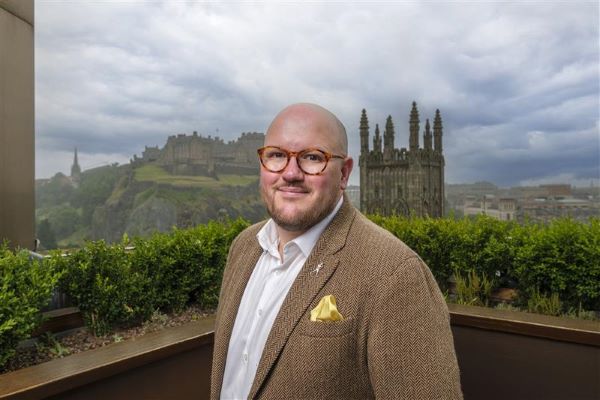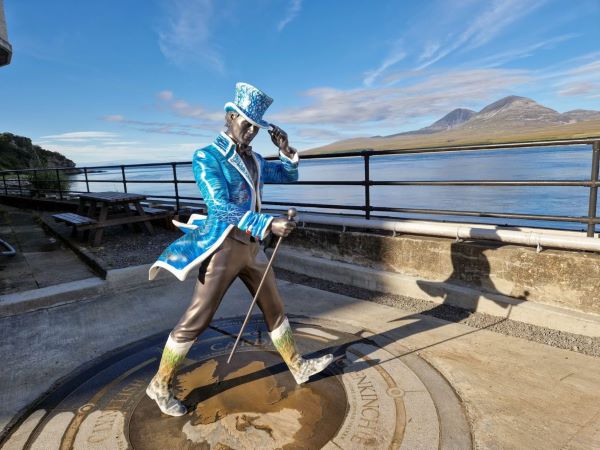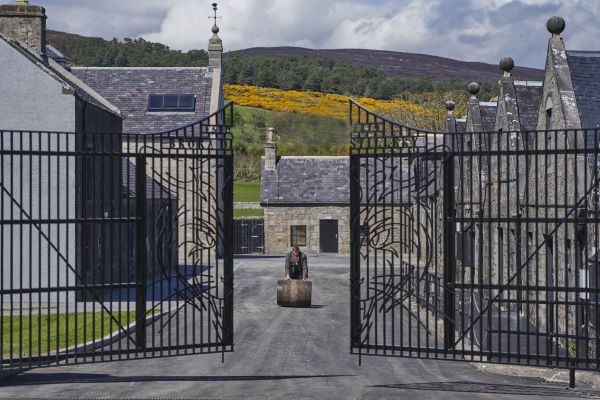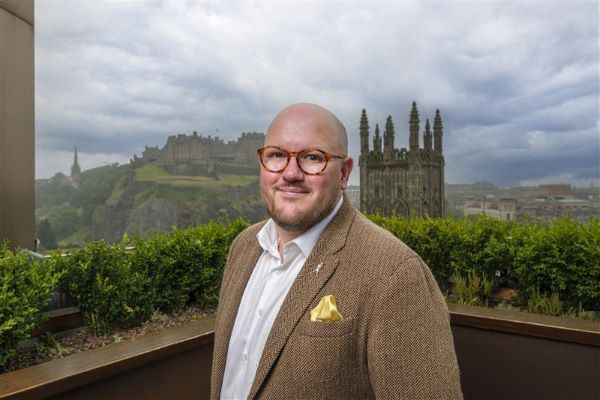Princes Street and Beyond
Through its glittering Johnnie Walker Experience in Edinburgh, and raft of brand homes across Scotland, Diageo has become a real driving force in whisky tourism. Ron Emler explores its mission to recruit consumers through experience …
Scottish tourism and Scotch whisky have a symbiotic relationship; they both benefit each other.
"People come to Scotland for all sorts of reasons; the Edinburgh Festival, Americans may be searching for family history. Others come to fish or walk or play golf. They are the top motivations," says Dafydd Pugh Williams, who runs Diageo's hospitality programme in Scotland.
The 2023 Scotland Visitor Survey found that of the two million tourists each year 21% will take in a whisky distillery or tasting during their stay.
"No one distillery will feature among their prime motivations", says Pugh Williams, "but add them all together [distillery visits] and collectively it becomes the prime motivation for people to visit Scotland."
Diageo has a more than 50% share of that visitor market, which it has cultivated over the years with visitor centres. But it wants to go much further than simply showing visitors how the spirit is produced and putting a dram in their hands.
The drive is to generate a much deeper understanding of Scotch, not only for Diageo's own brands (which hold about 40% of the global market), but for the industry a whole.
So, it has enhanced its visitor programme with a £185m investment in Scotch whisky tourism over the past decade, by far the largest the industry has seen.
This comes under Julie Bramham, the former global brand director for Johnnie Walker, and now head Diageo's new Luxury Group, which promotes its premium and ultra-premium spirits.
Among the 15 brand homes across Scotland, are the 'four corners' that focus on regional characteristics, the 'terroirs' of Scotch. They are the distilleries of Glenkinchie (Lowland), Cardhu (Speyside), Clynelish (Highland) and Caol Ila (Islay), which have all been extensively upgraded since 2020 to improve the visitor experience.
In addition, the 'ghost' distilleries of Brora and Port Ellen have been reopened after their long closure since the 1980s and now offer pre-booked, luxury tours.

But the flagship of the programme is the Johnnie Walker Experience on Edinburgh's Princes Street.
Calling this six-floor celebration of everything Scotch a 'house' is a misnomer because it prompts echoes of the original facilities in Beijing and Shanghai which were opened to much fanfare 15 years ago, but have since been quietly closed.
"They were really luxurious retail space essentially that sold Johnnie Walker," says Bramham. "What we have around the world now is private client spaces in locations such as Singapore, Taipei, and Hong Kong, with another to open in Dubai in May.
"They are invitation-only places where people can come and immerse themselves in our brands," she says, "where we host clients over dinner, do tastings in small exclusive groups. They are particularly Scotch spaces. That's what the clients are interested in. And now we have the opportunity to bring people to Scotland because they can see the distilleries, immerse themselves in the landscape and the storytelling."
"We've always had a compelling story," she continues, "but now we have so many opportunities to bring people to Scotland with tailored itineraries, to take them to spaces they could not have gone to before because they simply didn't exist. So, they feel very exclusive. The big message is to get people to Scotland, to create an experience that people really connect to. In the world of luxury people are as interested in an experience around a product as they are in the product itself."

Princes Street, however, is designed to enhance the understanding and appeal of Scotland's national beverage to vastly larger numbers, to recruit ever more people into Scotch and to challenge perceptions, especially of those who claim never to drink it.
"We want to get them away from the image of large leather chairs, roaring fires and neat malts in heavy glasses," says Pugh Williams. "Not that they don't have their place, but Scotch whisky offers so much more."
Opened in 2021 at a cost of £85 million, more than a million visitors had passed through its doors by last October, many taking the £30 two-hour Journey of Flavour.
This signature guided tour takes groups of about 20 through the history and whisky-making process of Johnnie Walker via live performances, light shows and tastings created after the visitors reveal their own preference for one of six flavours through an interactive questionnaire. Everyone gets at least three drinks to sample to show the versatility of Scotch.
Princes Street also has luxury facilities for special guests to meet distillers and blenders and taste some of the rarest malts in Diageo's stable. The roof-top restaurant and bar with panoramic views over the city are open to all, as is the retail space on the ground floor.
Is the investment paying off?
Bramham steers clear of the profitability, saying the programme is a long-term investment.

However, by the end of 2023, Diageo had hosted 1.69m guests across its Scottish brand homes including Princes Street, and Bramham expects that total to top two million very soon.
"We're in the top 10 attractions in Edinburgh already", says Pugh Williams.
On TripAdvisor Princes Street gets a five-star rating and its footfall is rising by about 15% a year. The average age of visitors is 39, half of them females.
"We recruit a lot of non-whisky drinkers," says Bramham. "They come in to Princes Street saying: 'I don't like whisky, I'm not interested in drinking it', and they come out of the Experience quite converted."
"Our net promoter score [the percentage of visitors who say they would recommend an attraction or experience] across the brand homes in Scotland is 84", says Bramham. "Disney's is about 40".
But she is not satisfied.
As Pugh Williams says: "We're really operating at the end of our initial launch phase. We've learnt a lot in these first three years and now it's about accelerating our consumer recruitment to Johnnie Walker."

Ron Emler is a financial journalist who has observed the drinks industry for 50 years. Following a career on The Times and the Sunday Telegraph, he is consultant City Editor at The Drinks Business.
